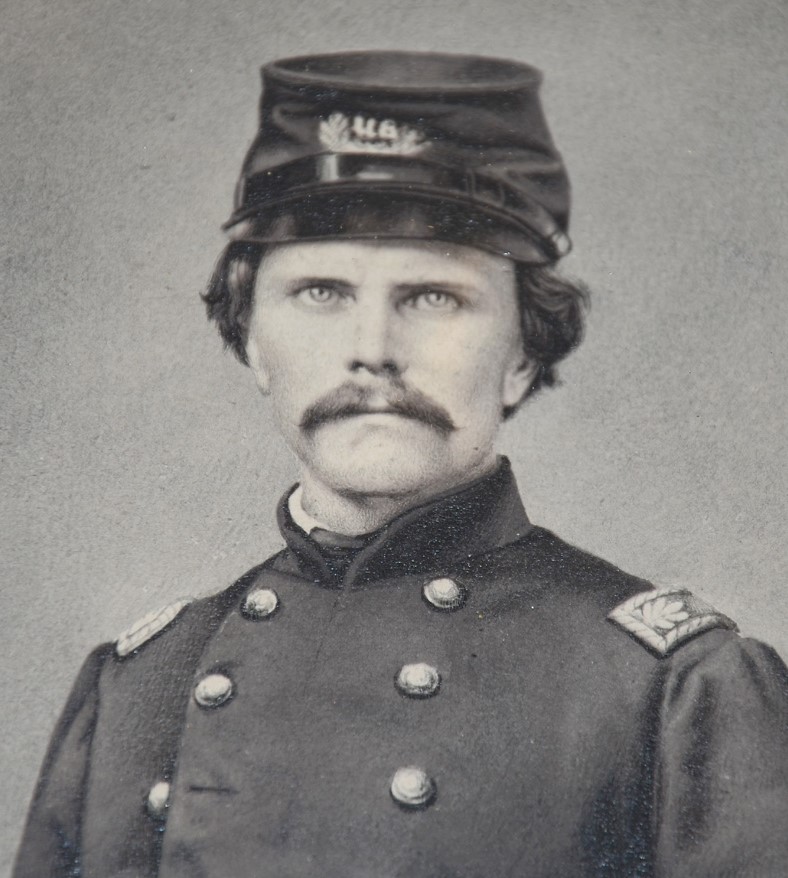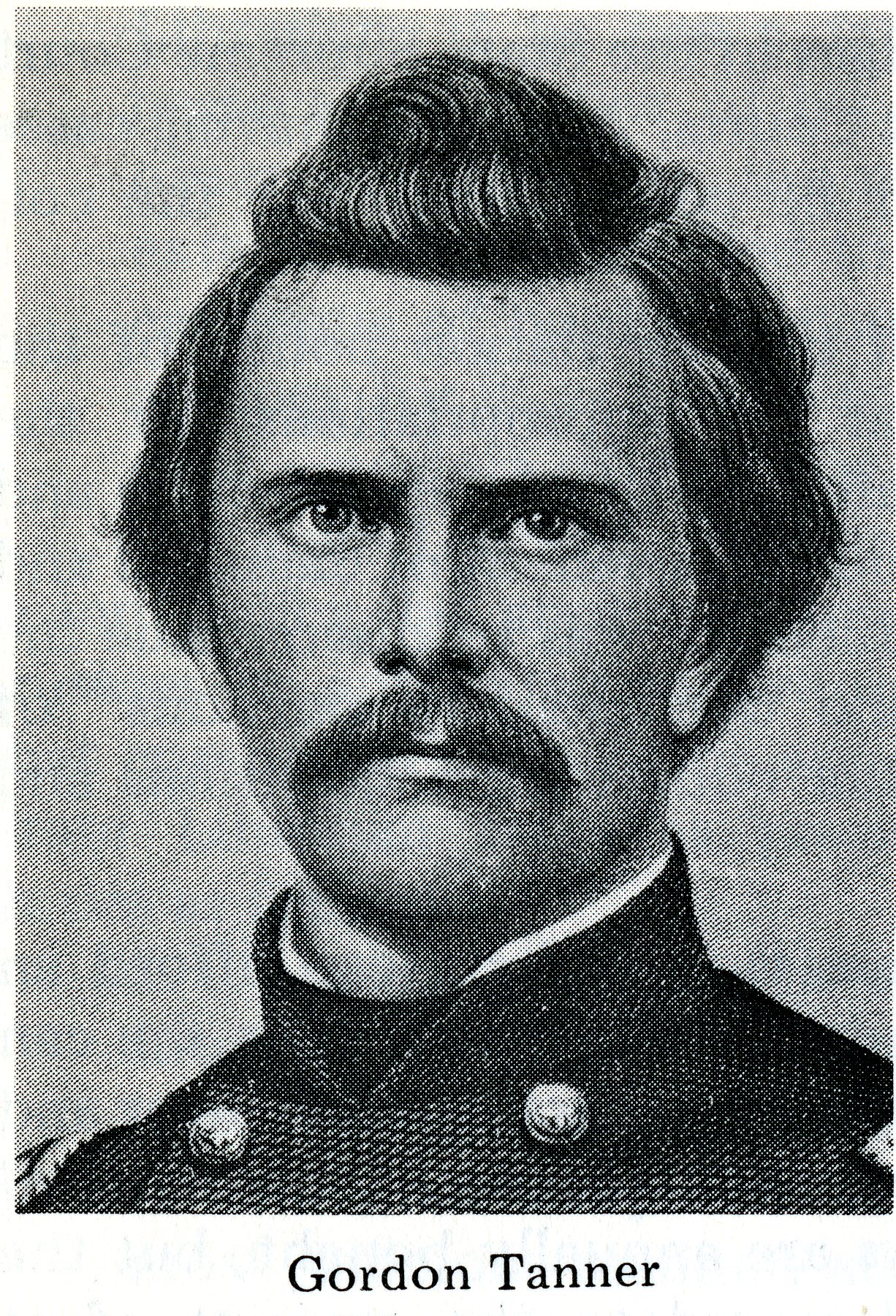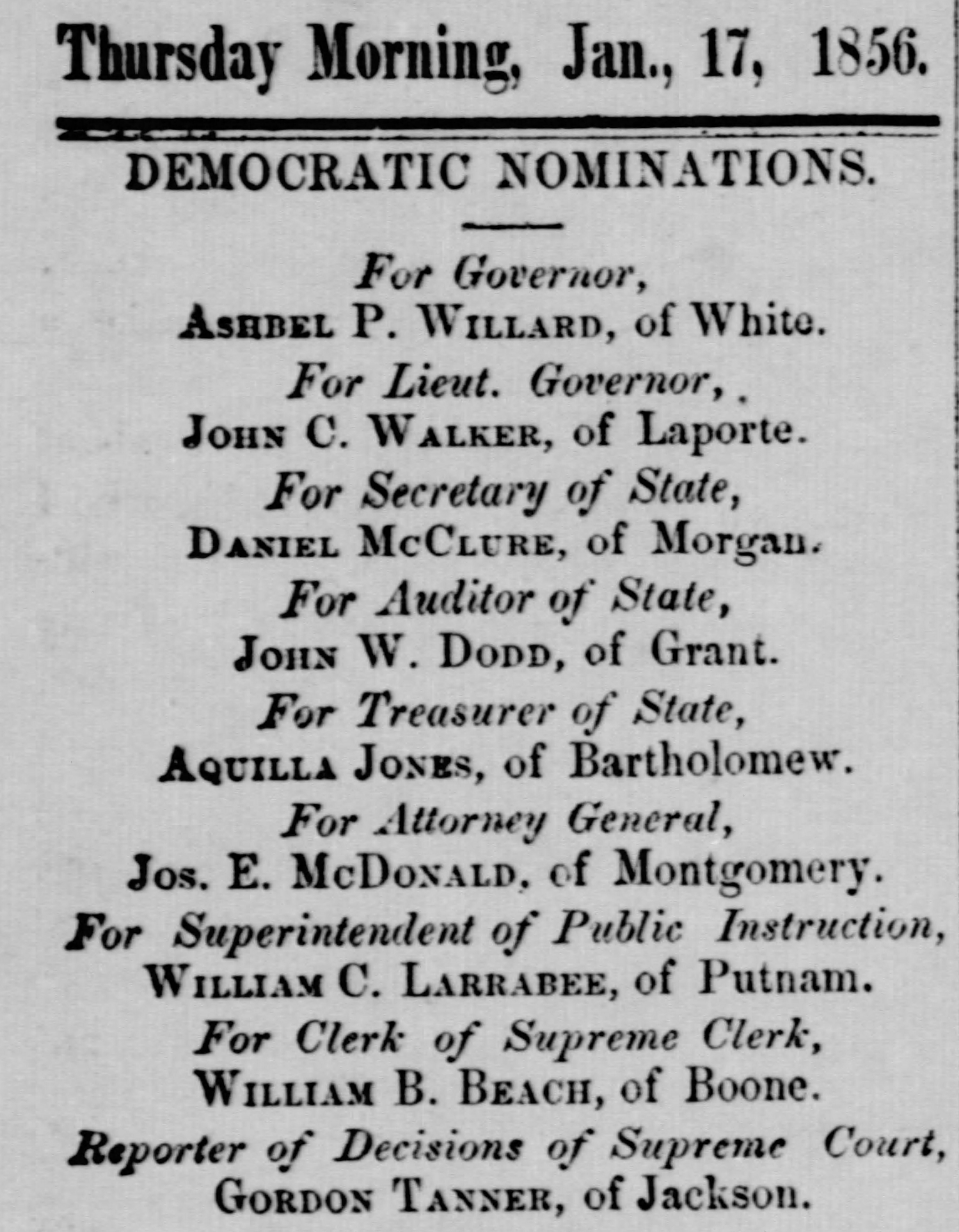Established in 1825, the Indiana State Library is approaching its 200th anniversary. The head of the agency is the State Librarian. There have been 33 State Librarians in position since 1841. From 1825 to 1841, the role of State Librarian was played by the Indiana Secretary of State. Nineteenth century State Librarians held the appointed position for only a few years, and the appointment was usually as a political party favor of some sort. Demarcus Brown changed that legacy when he held the position for twenty years, between1906 and 1926. The position is now hired by a board, no longer appointed by the legislature. This is a brief sketch of one of the early politically-appointed State Librarians, Gordon Tanner. Tanner served as State Librarian from 1854-1856.
Tanner was a young man when he served as Indiana’s State Librarian. He was only 24 years old. Tanner’s annual reports as State Librarian are critical about the lack of support the library was receiving. He reports, if the wages are not increased, he’ll have to abandon the post and seek other work, or he’d starve to death. He took over the books of the Indiana Law Library without authority, claiming they weren’t being cared for properly. He reports the State Library was not being given sufficient appropriations to continue to loan books, which required repair or replacement when damaged, lost or stolen. He wanted lending to cease. Ironically, the State Library report of 1862 lists Tanner among those with overdue books. Interestingly, Governor Morton was also guilty of not returning library material. Morton borrowed the Koran in 1861 and is on the overdue list in the 1862 report.
Tanner’s role as State Librarian is a blip in his whirlwind of life. Tanner served in the Mexican American War. He was active in Indiana Democratic party politics. He was Assistant Secretary of the 1850 Indiana Constitutional Convention. He was elected by the legislature as State Librarian between 1854 and 1856. Then, elected by the people of Indiana as Reporter of the Supreme Court between 1857 and 1860. He immediately and dramatically resigned that position at the Democratic State Convention when he learned he did not win the nomination for a second term. His final service was as a Major of the 22nd Indiana regiment in the Civil War. He was killed in Missouri in 1861, at the age of 32. Fast and furious, 1850s style.
While Tanner is described as bookish and intellectual, the newspaper record leads one to believe he was also an assertive and confrontational man of the times. There are reports of arguments at state party conventions, a public argument with Speaker of the House, Johnathan Gordon, and at one point the New Albany Ledger essentially calls him a jackass. A newspaper published his response to a request to use the State House lawn, which the State Librarian had authority over in those days. He grants approval to a rival political faction, acknowledging he did so because refusal would be “misrepresented as dictated by party spirit alone.” He ended the letter with, “you will please see that no damage is done to the shrubbery.”
It seems he was not shy about voicing his opinions which left him open to criticism, but also served him well in gaining him notoriety and influence in some circles. Major Gordon Tanner died in 1861 from wounds sustained in a skirmish of the Civil War. He was shot in the groin. The Indiana State Sentinel, who had a tumultuous relationship with Tanner, reports his death sympathetically “We have not time nor have the heart to say more than Gordon Tanner is dead, and that he died in service of his country – defending its honor and its flag.”1
Rest in peace Mr. Tanner. It sounds like you had a wild ride.
Tanner is buried at Crown Hill in Indianapolis, Loc: Sec 2, Lt 65.

Image found online at an auction site which said the photo is thought to have been given to the G.A.R. Tanner Post, Jackson County, by his son. The photograph is listed as sold.
Note: Stevenson’s Roll of Honor has a wonderful biographical sketch of Tanner. Accessible online here. The sketch says Tanner could read and write at the age of six and used his local library in Brownstown, Indiana regularly.
This post was written by Monique Howell, Indiana Collection supervisor.
1. Cited in the Lafayette Courier Journal, Oct. 1, 1861.


